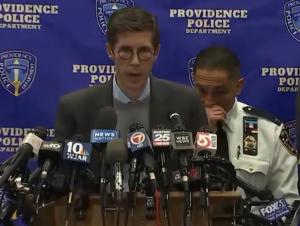The Night My Family Finally Understood What I Do: A Military Officer’s Journey from Dismissal to Respect
Sometimes those closest to us understand us least. This is the true story of how one family dinner and an emergency call transformed years of misunderstanding into newfound respect.
The Weight of Being Misunderstood
Major Sarah Martinez had grown accustomed to the sideways glances and awkward introductions at family gatherings. After fifteen years of military service, including three deployments and countless commendations, her relatives still introduced her as “the one who works for the government” or asked if she was “still playing soldier.”
It wasn’t malicious, she told herself. Her family simply didn’t understand a world they’d never inhabited—a world where leadership meant life-or-death decisions, where honor wasn’t just a word on a wall, and where serving others took precedence over personal comfort.
Her mother, a successful real estate developer, would beam with pride when discussing her other daughter’s law practice or her son’s medical residency. But when it came to Sarah’s military career, the conversations grew awkward, filled with vague references to “keeping our country safe” before quickly pivoting to safer topics.
The family had built their identity around traditional markers of success: prestigious degrees, corner offices, six-figure salaries, and social status. Sarah’s path—one that prioritized service over salary, duty over personal advancement—didn’t fit their familiar narrative of achievement.
A Family Built on Different Values
Growing up in an upper-middle-class suburb outside Chicago, Sarah had always been the outlier. While her siblings excelled in debate club and student government, she gravitated toward ROTC and community service. Her parents attributed it to a “phase” she’d eventually outgrow.
When she announced her intention to attend West Point, the dinner table fell silent. Her father, a corporate attorney, was the first to speak: “Sarah, you’re too smart for the military. You could go to Harvard, follow in your sister’s footsteps.”
Her mother nodded in agreement. “The military is for people who don’t have other options, honey. You have every opportunity in the world.”
That conversation, seventeen years ago, had set the tone for every family interaction since. They weren’t cruel or unsupportive—they simply viewed her career as a detour from her “real” potential rather than the fulfillment of her true calling.
Over the years, Sarah had learned to navigate family events with grace and patience. She smiled politely when relatives asked if she was “still in the army thing” and nodded when they expressed relief that she at least had “good benefits and job security.”
The Dinner That Changed Everything
The occasion was her nephew’s high school graduation—a celebration that brought together three generations of the Martinez family at an upscale restaurant downtown. Sarah arrived directly from base, still in her dress blues, having squeezed the dinner between official duties.
The familiar pattern began immediately. Compliments on her brother-in-law’s latest business acquisition. Excited discussion about her niece’s acceptance to medical school. Animated conversation about vacation homes and stock portfolios.
When the conversation turned to Sarah, it followed its predictable course.
“Still enjoying your government job?” asked her uncle, with the patronizing tone reserved for children’s hobbies.
“She’s basically middle management now,” her sister explained to her boyfriend, who was meeting the family for the first time. “Supervises a team, handles administrative stuff. Very stable work.”
Sarah had long ago stopped correcting these mischaracterizations. What was the point of explaining that she commanded a unit of 150 soldiers, oversaw multi-million-dollar operations, and made decisions that directly impacted national security? They’d nod politely and change the subject anyway.
The Moment Truth Interrupted Fiction
The family was deep into dessert and graduation toasts when Sarah’s secure phone buzzed with the urgent tone reserved for emergency calls. She glanced at the display: her commanding officer, calling at 9:47 PM on a Sunday.
“Excuse me,” she said quietly, stepping away from the table.
“Major Martinez,” came the crisp voice of Colonel Davidson. “We have a situation. Barricaded suspect at the federal courthouse downtown. Local PD requested our crisis negotiation team. How quickly can you mobilize?”
Sarah’s mind immediately shifted into operational mode. “Fifteen minutes to base, Colonel. What’s the tactical situation?”
“Armed individual, claims to have explosives, three hostages. He’s specifically asking for military negotiators. Says he won’t talk to civilian law enforcement.”
“Copy that. Assembling my team now.”
She ended the call and returned to the table, where her family was still discussing graduation party plans. Her mother looked up with mild annoyance.
“Sarah, we’re in the middle of dinner. Can’t your work wait until tomorrow?”
“I have to go,” Sarah said simply, already calculating the fastest route to base. “Emergency situation.”
Her father chuckled. “What kind of emergency? Did someone mess up the filing system?”
The table erupted in gentle laughter. Her cousin added, “Must be some urgent paperwork that can’t wait until Monday morning.”
When Reality Collides with Assumptions
Sarah could have left it there. Could have smiled, made her excuses, and departed as she had dozens of times before, letting them maintain their comfortable fiction about her “administrative” role.
Instead, something made her pause.
“There’s an armed individual holding hostages at the federal courthouse,” she said quietly. “He has explosives and won’t negotiate with civilian authorities. My crisis negotiation team has been called in to resolve the situation.”
The laughter died abruptly. Her mother’s wine glass stopped halfway to her lips.
“Your… what team?” her sister asked.
“Crisis negotiation. I’m trained in hostage situations, terrorist incidents, and psychological operations. It’s what I do.”
The silence stretched uncomfortably. Her nephew, the graduate, was the first to speak.
“Aunt Sarah, that’s… that’s really dangerous, isn’t it?”
She looked at him—really looked at him—and saw genuine concern and something that might have been pride. “Sometimes, yes. But it’s also important work. People’s lives depend on getting it right.”
Her father cleared his throat. “Sarah, I had no idea you… we thought you worked in administration.”
“I command the 42nd Psychological Operations Battalion,” she said simply. “We specialize in crisis resolution, cultural advisory operations, and strategic communications in high-stress environments.”
The Mission That Opened Eyes
Sarah left the restaurant to a chorus of “be careful” and “call us when it’s over”—words she’d never heard from her family before. As she drove to base, she reflected on how surreal it felt to finally share the reality of her work with people who’d spent years imagining a sanitized version.
The situation at the courthouse was exactly as Colonel Davidson had described. Marcus Williams, a 34-year-old veteran struggling with PTSD, had barricaded himself in a third-floor office with three federal employees. He claimed to have explosives and demanded to speak with “someone who understands what we’ve been through.”
Sarah’s team established communication within the hour. The negotiation lasted six grueling hours, requiring every technique she’d learned in fifteen years of military service: active listening, cultural sensitivity, psychological assessment, and tactical patience.
Williams wasn’t a terrorist—he was a broken man seeking someone who understood the unique challenges of military service and the difficulties of reintegrating into civilian life. Sarah drew on her own experiences, her training, and her genuine empathy to slowly build trust.
“Marcus,” she said during their third hour of conversation, “I hear you saying that people don’t understand what you’ve sacrificed. Help me understand.”
The breakthrough came at 4:17 AM when Williams agreed to release the hostages in exchange for Sarah’s promise to personally connect him with veteran mental health services. No shots were fired. No one was hurt. The “explosives” turned out to be road flares wrapped in duct tape.
The Phone Call That Changed Everything
At 6:30 AM, exhausted but relieved, Sarah called her mother from the courthouse steps. Local news crews were packing up their equipment, and the first responders were beginning their post-incident procedures.
“Mom? It’s Sarah. The situation is resolved. Everyone’s safe.”
“Oh, thank God.” Her mother’s voice was thick with tears Sarah had never heard before. “Sarah, I… we had no idea. We’ve been watching the news all night. They said a military negotiator talked him down.”
“That was me, Mom.”
“I know, sweetheart. I know now.”
The silence that followed was different from the awkward pauses of previous conversations. This was the silence of understanding, of recognition, of a fundamental shift in perception.
“Sarah,” her mother continued, “I owe you an apology. We all do. We never understood… we never tried to understand what you really do.”
“Mom, it’s okay. It’s hard to explain this world to people who haven’t lived it.”
“No, it’s not okay. We minimized your career because we didn’t understand it. We assumed it was less important because it was different from what we know.”
Understanding Through Crisis
The local news coverage of the courthouse incident became a turning point for Sarah’s family. They saw their daughter, sister, and aunt identified as “Major Sarah Martinez, commanding officer of the 42nd Psychological Operations Battalion” and quoted as saying, “Our primary mission is always the preservation of life and the peaceful resolution of conflict.”
Her nephew called her later that week. “Aunt Sarah, I’ve been reading about psychological operations. It’s like… spy stuff, right?”
Sarah laughed. “It’s more like understanding people and situations well enough to influence outcomes without violence. We use psychology, cultural knowledge, and communication skills to solve problems that can’t be solved with traditional force.”
“That’s actually really cool. And really important.”
“I think so too.”
Her sister called a few days later with a different tone than Sarah had ever heard from her.
“Sarah, I watched your interview on Channel 7. You were so… professional. Calm. In command. I realized I’ve never really seen you in your element before.”
“It’s what I do, Linda. It’s who I am.”
“I know that now. And I’m sorry it took a crisis for me to see it.”
The Respect That Comes with Understanding
The change in family dynamics wasn’t immediate or dramatic, but it was profound. At the next family gathering—her father’s 70th birthday—the conversations were different.
Instead of vague references to her “government work,” her relatives asked specific questions about her training, her missions, and her responsibilities. They wanted to understand the skills required for crisis negotiation, the psychology behind hostage situations, and the complexity of military leadership.
Her father, who had once suggested she was “too smart for the military,” pulled her aside after dinner.
“Sarah, I owe you an apology. I’ve spent years thinking your career was somehow lesser because I didn’t understand it. Watching you handle that courthouse situation… seeing the respect in that police chief’s voice when he talked about your team… I realize I was wrong.”
“Dad, you weren’t wrong to want success for me. You just had a different definition of what success looks like.”
“No, I was wrong about what success means. You save lives, Sarah. You prevent tragedies. You serve something bigger than yourself. That’s not just success—that’s purpose.”
Beyond the Uniform: Understanding Service
The courthouse incident had given Sarah’s family a glimpse into her professional world, but the deeper conversations that followed revealed the philosophy behind her career choice.
During a quiet moment at her niece’s wedding months later, her mother asked the question that had been years in the making: “Sarah, why the military? Really. Help me understand what drew you to this life.”
Sarah considered her answer carefully. “When I was in college, I volunteered at a homeless shelter. There was this veteran—probably Dad’s age—who’d been living on the streets for three years. One night, he told me that the hardest part wasn’t the cold or the hunger. It was feeling invisible.”
She paused, watching her niece dance with her new husband.
“He said that in the military, he’d mattered. His skills mattered. His decisions affected real outcomes. In civilian life, he felt like he was just taking up space. That conversation made me realize that service—real service—is about being part of something that matters, even when it’s difficult.”
Her mother nodded slowly. “And you found that in the military.”
“I found purpose. I found a place where my skills could make a real difference in people’s lives. Where leadership isn’t about corner offices or profit margins—it’s about bringing people home safely and preventing conflicts before they escalate.”
The Ripple Effects of Recognition
Sarah’s nephew decided to apply for ROTC scholarships after their conversations about military service. Her sister began volunteering with veteran support organizations, citing her newfound understanding of military challenges as motivation.
Most significantly, her parents started attending military ceremonies and events they’d previously avoided. They learned the traditions, understood the hierarchy, and began to see the military not as a deviation from success but as a different path toward meaningful achievement.
“I wish we’d asked more questions earlier,” her father admitted during a promotion ceremony where Sarah was advanced to Lieutenant Colonel. “We missed so many years of understanding what you were accomplishing.”
“You’re asking now,” Sarah replied. “That’s what matters.”
The transformation wasn’t just about understanding Sarah’s career—it was about recognizing that success comes in many forms, and that service to others represents one of the highest forms of achievement.
Lessons in Leadership and Family
The courthouse incident had taught Sarah’s family about her professional capabilities, but the ongoing conversations revealed deeper truths about leadership, service, and the different ways people contribute to society.
Her brother, a pediatric surgeon, found unexpected parallels between their careers during a family vacation discussion.
“You know, Sarah, I never realized how similar our work is. We both deal with crisis situations, make decisions under pressure, and prioritize other people’s wellbeing over our own comfort.”
“The only difference,” Sarah replied, “is that your patients choose to trust you. In my work, I often have to earn that trust from people who see me as the enemy.”
“That’s actually harder, isn’t it?”
“Different challenges, same commitment to helping people.”
These conversations helped the family understand that while their career paths looked different on the surface, they shared common values: dedication to service, commitment to excellence, and the desire to make a positive impact on the world.
The New Family Dynamic
Two years after the courthouse incident, Sarah’s role in family gatherings had fundamentally changed. She was no longer the outlier whose career was politely ignored—she was recognized as an expert in leadership, crisis management, and human psychology.
When her cousin faced a difficult situation with a troubled employee, he called Sarah for advice on conflict resolution. When her sister’s law firm needed training on de-escalation techniques for difficult clients, they hired Sarah as a consultant.
The family had not only come to understand her career but to value the unique skills and perspectives her military experience provided.
“You see people differently than we do,” her mother observed during a discussion about community problems. “You see potential solutions where we see insurmountable challenges.”
“Military training teaches you to think systematically about complex problems,” Sarah explained. “Every situation has multiple variables, but there’s usually a path to resolution if you’re willing to think creatively and remain patient.”
Paying It Forward: Mentoring the Next Generation
Sarah’s newfound respect within her family extended to her role as a mentor to young military officers and a bridge between military and civilian communities. She began speaking at high schools and colleges about military careers, helping other families understand the value and complexity of military service.
“One of the biggest challenges military personnel face,” she told a parent group at her nephew’s school, “is the civilian-military divide. When families don’t understand military service, it creates isolation for service members who already face unique stresses.”
Her presentations helped other families avoid the years of misunderstanding that had characterized her own family relationships. She emphasized that military careers offer legitimate paths to leadership, technical expertise, and meaningful service—not consolation prizes for people who couldn’t succeed elsewhere.
The courthouse incident had been a catalyst, but the real change came from ongoing dialogue and education that helped her family—and other families—recognize the value of military service in all its forms.
Reflections on Service and Family
Five years later, as Lieutenant Colonel Sarah Martinez prepared for her next assignment overseas, her family gathered for what had become a tradition: a pre-deployment dinner where they discussed her mission and the importance of her work.
The contrast with previous farewells was striking. Instead of awkward platitudes about “staying safe,” her family engaged with the complexities of her assignment. They understood the strategic importance of her work, the skills required for success, and the ways her mission contributed to larger national security objectives.
“I know you can’t tell us everything,” her father said during his goodbye speech, “but we want you to know that we understand you’re doing important work. Work that matters. Work that makes us proud.”
The words Sarah had waited years to hear finally came naturally, born from genuine understanding rather than obligatory support.
“Thank you,” she replied. “For taking the time to understand. For asking the right questions. For seeing my career as valuable, not just different.”
Her mother hugged her tightly. “We should have asked those questions years ago. We should have tried to understand sooner.”
“You understand now. That’s what matters.”
The Lasting Impact of Crisis and Conversation
The courthouse incident had lasted only six hours, but its impact on Sarah’s family relationships continued for years. It taught them that understanding requires effort, that respect must be earned through knowledge, and that families grow stronger when they embrace rather than merely tolerate each other’s differences.
Sarah’s military career had always been about service—to her country, her soldiers, and the civilians whose safety depended on her expertise. The courthouse crisis added another dimension: service to her own family by helping them understand the value of military service and the complexity of modern military roles.
The experience also reinforced Sarah’s belief that most conflicts—whether international incidents or family misunderstandings—can be resolved through patient communication, genuine listening, and the willingness to see situations from multiple perspectives.
“Military training teaches you that the most powerful weapon is often the ability to understand and communicate,” she reflected during her final family dinner before deployment. “That applies whether you’re negotiating with hostage-takers or helping your own family understand your career choices.”
A Message for Military Families Everywhere
Sarah’s story resonates with thousands of military families who struggle with civilian-military understanding gaps. Her experience offers hope that these divides can be bridged through honest communication, patience, and the willingness to educate rather than simply endure misunderstanding.
For military personnel dealing with family misunderstanding, Sarah’s advice is straightforward: “Don’t assume they understand your world, but don’t assume they’re incapable of understanding it either. Sometimes it takes a crisis to open their eyes, but more often it just takes honest conversation and the willingness to explain what you do and why it matters.”
For civilian family members of military personnel, her message is equally clear: “Ask questions. Real questions. Not just ‘How was work?’ but ‘What did you accomplish today?’ and ‘How do your skills make a difference?’ Your service member has chosen a career of significance—take the time to understand what that means.”
The courthouse incident was extraordinary, but the family conversations that followed were available to any family willing to invest in understanding. Crisis may have been the catalyst, but conversation was the real catalyst for change.
Legacy of Understanding
Today, Lieutenant Colonel Sarah Martinez continues her military service with the knowledge that her family finally understands and respects her career choice. More importantly, they’ve become advocates for military service and educators within their own communities about the complexity and importance of modern military roles.
Her nephew, now a college sophomore in ROTC, credits their conversations with helping him understand that military service isn’t about giving up civilian opportunities—it’s about choosing a different path to leadership and service.
Her sister’s law firm now employs several veterans, and her brother’s medical practice provides pro bono services to military families. The ripple effects of understanding extended far beyond one family’s dinner table conversations.
The courthouse incident proved that Sarah was capable of handling high-stakes crisis situations, but the ongoing family dialogue proved something equally important: that understanding and respect can grow between people with very different worldviews when they’re willing to listen, learn, and bridge the gaps that separate them.
Sometimes it takes a crisis to reveal who we really are. Sometimes it takes courage to show our families the full truth of our lives. And sometimes, the most important victories happen not on battlefields or in courtrooms, but around dinner tables where love and understanding finally find common ground.
Final Thoughts: Service, Sacrifice, and Family
Military service requires many sacrifices—time with family, personal comfort, predictable routines, and sometimes physical safety. But for Sarah Martinez, one of the most painful sacrifices had been her family’s misunderstanding of her chosen path.
The courthouse incident didn’t just resolve a hostage situation—it resolved years of family tension and mutual incomprehension. It proved that beneath the surface differences in career choices, the Martinez family shared fundamental values: the desire to help others, the commitment to excellence, and the belief that meaningful work requires sacrifice.
Sarah’s journey from family misunderstanding to family pride illustrates a broader truth about military service: it’s not a consolation prize for people who lack other options, but a demanding career path that requires unique skills, exceptional leadership capabilities, and the willingness to prioritize service over personal gain.
For families struggling with civilian-military understanding gaps, Sarah’s story offers both hope and a roadmap. Understanding doesn’t require shared experience, but it does require shared effort to bridge the communication gaps that separate different worlds.
Most importantly, it reminds us that respect—real respect—is built through understanding, and understanding is built through the willingness to ask hard questions, listen to difficult answers, and recognize that there are many valid paths to a life of meaning and service.

Emily Johnson is a critically acclaimed essayist and novelist known for her thought-provoking works centered on feminism, women’s rights, and modern relationships. Born and raised in Portland, Oregon, Emily grew up with a deep love of books, often spending her afternoons at her local library. She went on to study literature and gender studies at UCLA, where she became deeply involved in activism and began publishing essays in campus journals. Her debut essay collection, Voices Unbound, struck a chord with readers nationwide for its fearless exploration of gender dynamics, identity, and the challenges faced by women in contemporary society. Emily later transitioned into fiction, writing novels that balance compelling storytelling with social commentary. Her protagonists are often strong, multidimensional women navigating love, ambition, and the struggles of everyday life, making her a favorite among readers who crave authentic, relatable narratives. Critics praise her ability to merge personal intimacy with universal themes. Off the page, Emily is an advocate for women in publishing, leading workshops that encourage young female writers to embrace their voices. She lives in Seattle with her partner and two rescue cats, where she continues to write, teach, and inspire a new generation of storytellers.









